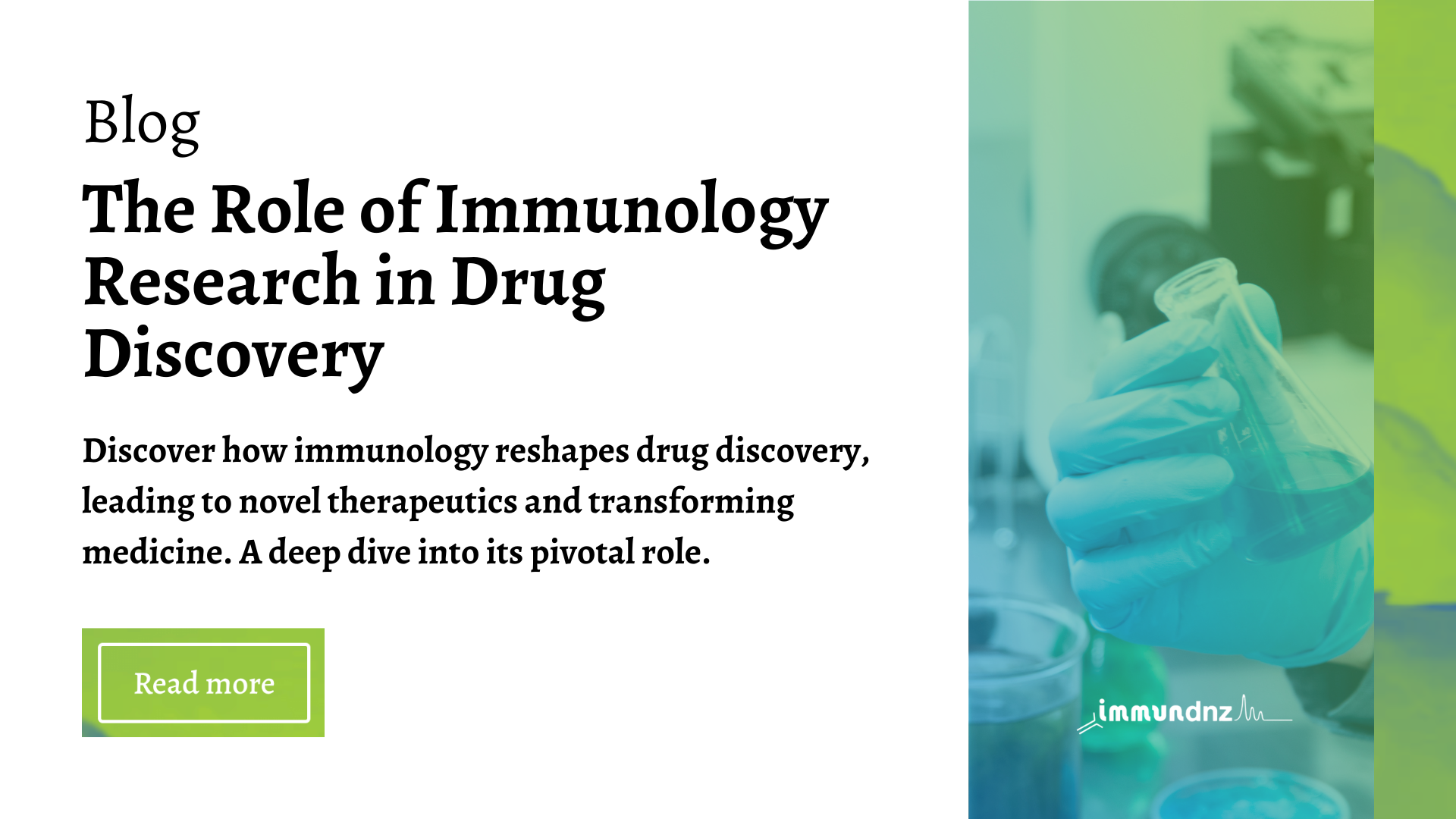Immunology research stands as the cornerstone of modern drug discovery, providing invaluable insights into the intricate workings of the immune system and its profound implications for human health. We will explain here the paramount importance of immunology in the quest for novel therapeutics, elucidating how advancements in this field have revolutionized drug discovery and transformed the landscape of medicine. This article explains The Role of Immunology Research in Drug Discovery.
Unraveling the Complexity of the Immune System
At the heart of immunology research lies the exploration of the immune system, a remarkably intricate network of cells, tissues, and molecules tasked with safeguarding the body against pathogens, toxins, and malignant cells. Deciphering the complexities of immune function entails studying diverse cell types such as T cells, B cells, dendritic cells, and macrophages, each endowed with specialized roles in orchestrating immune responses. Moreover, the immune system exhibits remarkable plasticity, capable of mounting tailored responses to a myriad of threats while maintaining self-tolerance and homeostasis.
Targeting Immunological Pathways in Disease
Immunology research plays a pivotal role in elucidating the pathogenesis of various diseases, so targeting immunological pathways, ranging from infectious disorders to autoimmune conditions and cancer. By unraveling the molecular mechanisms underlying immunopathologies, researchers can identify novel therapeutic targets for intervention. For instance, autoimmune diseases such as rheumatoid arthritis and multiple sclerosis arise from dysregulated immune responses against self-antigens, prompting the development of targeted immunomodulatory agents to restore immune balance. Similarly, cancer immunotherapy exploits the body’s immune system to recognize and eradicate malignant cells, leading to unprecedented breakthroughs in cancer treatment.
Revolutionizing Drug Discovery with Immunotherapeutics
The advent of immunotherapy represents a watershed moment in drug discovery, offering novel approaches for the treatment of cancer, infectious diseases, and immune-mediated disorders. Unlike traditional small molecule drugs that target specific molecular pathways, immunotherapeutics harness the power of the immune system to combat disease. Key modalities include immune checkpoint inhibitors, monoclonal antibodies, adoptive cell therapies, and therapeutic vaccines, each designed to modulate immune responses and unleash potent anti-tumor or anti-pathogen effects.
Navigating the Immune Landscape in Cancer
In the realm of cancer immunotherapy, understanding the dynamic interplay between tumors and the immune system is paramount. Tumors employ a variety of immune evasion strategies, including upregulation of immune checkpoint molecules, recruitment of immunosuppressive cells, and induction of tolerance mechanisms. Immunology research provides crucial insights into these immunosuppressive mechanisms, paving the way for the development of combination therapies that target multiple checkpoints and overcome resistance mechanisms. Moreover, biomarkers such as tumor mutational burden, PD-L1 expression, and immune cell infiltration enable patient stratification and prediction of treatment responses, guiding personalized therapeutic approaches.
Harnessing Innovative Technologies in Immunology Research
Advancements in technology have catalyzed groundbreaking discoveries in immunology research, enabling high-throughput screening, single-cell analysis, and systems biology approaches. Cutting-edge techniques such as CRISPR-Cas9 gene editing, next-generation sequencing, and mass cytometry facilitate the interrogation of immune cell diversity, function, and interactions in health and disease. Moreover, computational modeling and artificial intelligence algorithms accelerate the identification of immunological targets, prediction of drug responses, and optimization of therapeutic regimens, ushering in a new era of precision medicine.
Collaborative Endeavors and Translational Research
Immunology research thrives on collaboration across disciplines, encompassing basic science, translational research, and clinical trials. Academic institutions, biopharmaceutical companies, and government agencies collaborate closely to translate scientific discoveries into innovative therapies that benefit patients worldwide. Moreover, patient advocacy groups and philanthropic organizations play a vital role in driving research initiatives, raising awareness, and supporting the development of new treatments for unmet medical needs.
Conclusion
Immunology research stands as a beacon of hope in the quest for transformative therapies that combat disease and improve human health. By unraveling the complexities of the immune system, elucidating disease mechanisms, and harnessing innovative technologies, researchers continue to push the boundaries of drug discovery and pave the way for personalized, precision medicine. As we navigate the challenges and opportunities presented by immunology, collaboration, innovation, and perseverance remain paramount in our collective pursuit of novel therapeutics that shape the future of medicine.


